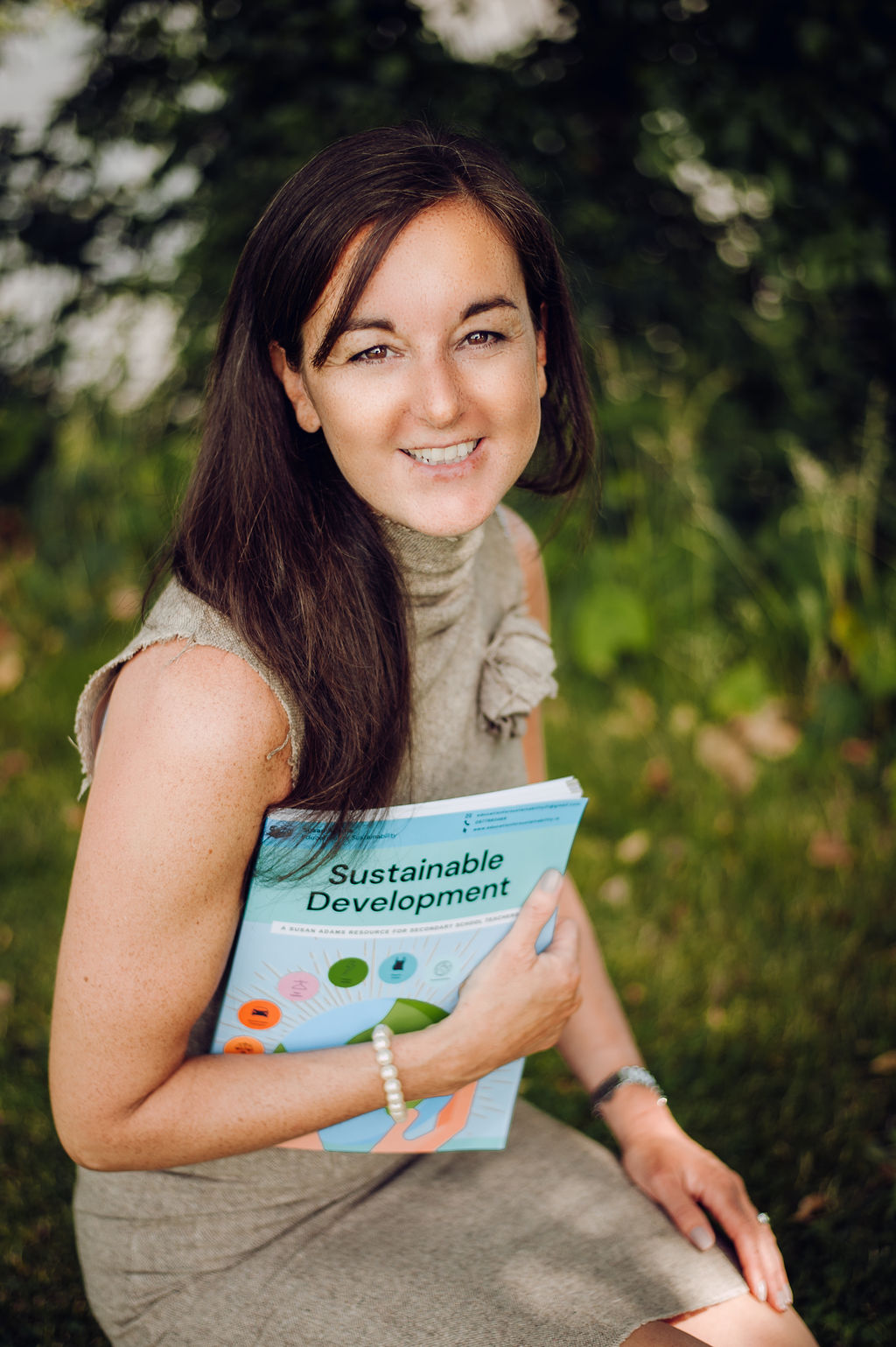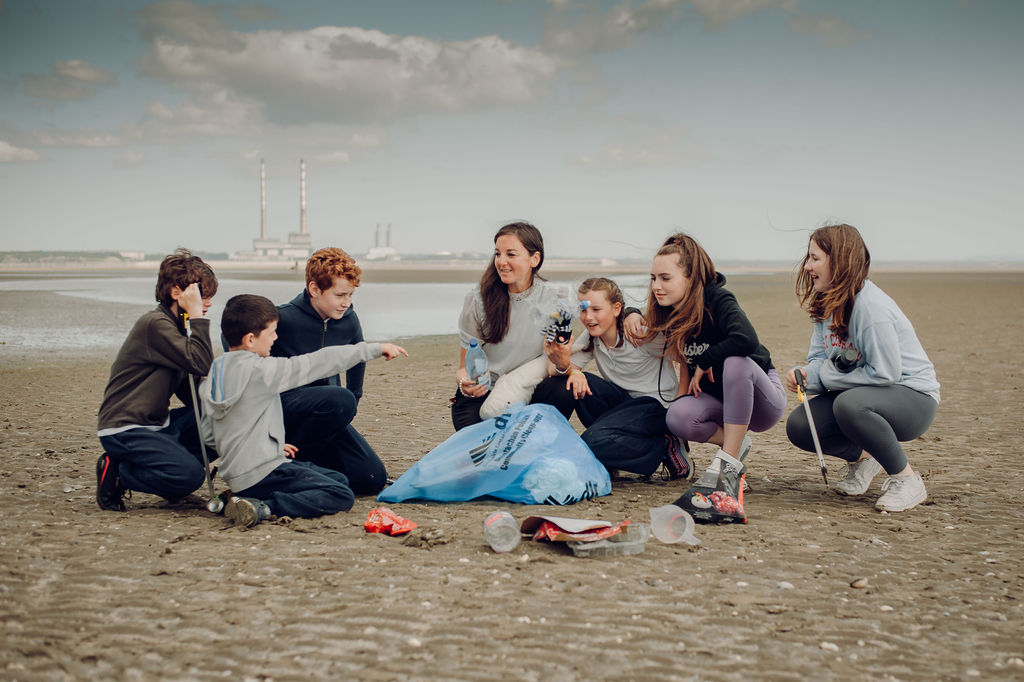Education for Sustainability in the fight Against Climate Ignorance
Chloe Seymour speaks to Susan Adams on her journey to creating a self-funded sustainability course for adolescents.
Education for Sustainability (EFS) is an Irish NGO, set up in 2017 to promote and teach the youth of today about climate activism and climate change.
EFS provides a variety of courses for secondary schools, such as how to reduce waste, being plastic free and teacher training workshops to aid teachers in effectively teaching about the climate crisis.
Amárach spoke to founder of Education for Sustainability and former Dublin Zoo employee, Susan Adams, on her inspiration, experience, and the future of the organization. Susan Adams won ECO UNESCO’s ECO Leader of the Year 2017 for supporting Newpark School and Kill of the Grange National School in winning environmental awards in the Young Environmentalist Awards 2017.
“I loved working in Dublin Zoo, it was an amazing opportunity, an incredibly unique experience. However, what spurred me onto schools was looking at the curriculum through the lenses of my own kids. Why wasn’t anyone talking about biodiversity loss? Does anyone care that we might not have elephants by 2030?” questions Ms. Adams.
In the beginning, Ms. Adams started by knocking on the doors of people she knew, she then returned to her old school with her own program and to request an opportunity to share her knowledge.
“Since 2017, EFS has evolved and grown, it is in 60 schools now. I have tried to make it fun and interactive, while including these big subjects, such as plastic waste and breaking them down into tangible sections for students to learn about” Adams explained.
The loss of nature is a massive issue when it comes to climate change, and a primary motivator for Ms. Adams on her journey. According to the WWF, scientists have estimated that most species of living creatures on this planet (including plants) will have to relocate more than 1,000 meters (which is about twice the height of the Empire State Building) per year if they are to keep within the climate zone that they need for survival.
“Many species will not be able to redistribute themselves fast enough to keep up with the coming changes,” according to the WWF.
Ms. Adams said her goal is to make people care about our future and the future of our planet.
“The program is constantly evolving along with the environment. Covid let me organise exactly what I wanted to include in the curriculum.” While she has been active in providing EFS courses since 2017, Ms. Adams said her classes really took off in the past year.
Ms. Adams appeals to the youth of today by focusing on topics such as fast fashion, which are often of interest to the groups on the course. “It’s important to hook students in with these subjects, I bring in plastics in fast fashion and once I have that hook, it’s easier to keep people engaged for the less exciting topics that have to be covered.”
Ms. Adams spoke about how all areas of climate change are interconnected, like a spider's web. Each topic covered has its own purpose for existing in the course and in the context of climate change, no one topic can be selected as more relevant or important than any other.
Climate change is now being included in official school curriculums. But these changes have not been made to an extent that allows real understanding, due to the disconnect between brief mentions of climate change in different subjects and the reality of the situation, according to Ms. Adams.
“For example, if we need space to grow food, we cut down a forest. This impacts biodiversity and soil, which will impact on water. It must be taught as a web because it is a web. This is the issue with the current education system, everything is taught in isolation.”
The Environmental Protection Agency estimates that future climate change will lead to changes in the distribution of plant and animal species and in the phenology (the timing of lifecycle events) of native species across the country.
Each class has both practical and academic elements to give students a rounded knowledge, and to keep them interested in the class itself, “at the end, they have a checklist of the things they can do in their lives to make change, they go out the door with a clear understanding of the subject and their own power in this situation.”
There is so much information on climate change and Ms. Adams feels that breaking these big subjects down into palpable solutions can allow for the climate crisis situation to feel much clearer to those looking to learn more. Even turning down the thermostat to reduce electricity consumption and thermal pollution can make a difference.
“A set of simple actions that relate to each topic we cover, helps people understand exactly what to do.”
In terms of governmental support for climate action, Ms. Adams feels that decisions are being made, however, “they do not have any real understanding of how things work in schools.”
Recounting some teacher training sessions she completed, Ms. Adams said there is a lack of knowledge in many areas of the climate crisis. “When brainstorming what the teachers could do in their subjects to teach on climate change, the best they could manage to come up with was recycling.” Ms. Adams feels that examples such as this highlight the lack of understanding of climate action, even for those who are working in the education sector.
According to EFS, when looking to get involved in slowing down climate change, the most important thing to do is to break it down into the simplest of steps for yourself, start small and move from there.
Ms. Adams feels that educating in a way that is non-judgmental is essential when encouraging people to get involved with initiating change. If buying clothes sustainably is out of the question for someone, that is fine when one is working to make changes where they can.
In terms of her plans for EFS, Ms. Adams is adapting her classes for primary schools, which will be released in the new year. In addition, she is looking to begin working with businesses for school sponsorships for engaging with climate action.
To find out more about Education for Sustainability, visit: https://educationforsustainability.ie
Amárach spoke to founder of Education for Sustainability and former Dublin Zoo employee, Susan Adams, on her inspiration, experience, and the future of the organization. Susan Adams won ECO UNESCO’s ECO Leader of the Year 2017 for supporting Newpark School and Kill of the Grange National School in winning environmental awards in the Young Environmentalist Awards 2017. “I loved working in Dublin Zoo, it was an amazing opportunity, an incredibly unique experience. However, what spurred me onto schools was looking at the curriculum through the lenses of my own kids. Why wasn’t anyone talking about biodiversity loss? Does anyone care that we might not have elephants by 2030?” questions Ms. Adams. In the beginning, Ms. Adams started by knocking on the doors of people she knew, she then returned to her old school with her own program and to request an opportunity to share her knowledge.

